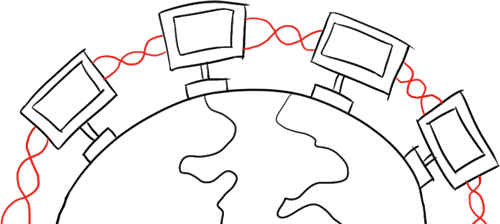Team:Heidelberg/Human Practice
From 2014.igem.org
| Line 55: | Line 55: | ||
</a> | </a> | ||
| - | <div class="box cell" style="width:70%; position: | + | <div class="box cell" style="width:70%; position:relative;"> |
<div id="carousel-wrapper"> | <div id="carousel-wrapper"> | ||
<div id="carousel-example-generic" class="carousel slide" data-ride="carousel"> | <div id="carousel-example-generic" class="carousel slide" data-ride="carousel"> | ||
Revision as of 13:38, 11 October 2014
– This is a test subtitle
ABSTRACT
With ongoing advances, the introduction to consequences of scientific research to the public is becoming an increasingly important task for an iGEM team, as it should be in every scientific community. In our Human Practice work we address this problem in a comprehensive programme and discuss benefits as well as dangers of Synthetic Biology. The potential discoveries and applications in Synthetic Biology will have significant influences on everyday life, therefore a continuous and public dialogue on limitations and allowances is necessary.</p>Research and knowledge lead to responsibility for everyone of us. In Friedrich Dürrenmatt’s satiric drama “The Physicists” the main character Möbius has solved the world formula, which includes an explanation for gravity. This discovery turns out to be both blessing and curse and could decide the fate of humanity. Being aware of the impact his findings might have he chooses to spend the rest of his life in a sanatorium instead of having to bear the responsibility that comes with publication.
Although written in 1962 the drama is still up to date as it reflects the questions of scientific ethics and humanity's ability to handle its intellectual responsibilities.
A key aspect of the work of the iGEM Team Heidelberg is therefore to increase the dialogue between science, society and industry.
Read about the different efforts we made in the last few months and dig deeper into our Human Practice concept, which includes also a new open source tool for the whole iGEM community.
iGEM@Home
 Hier findet der Leser eine Erklärung. Hier findet der Leser eine kurze Erklärung.
Hier findet der Leser eine Erklärung. Hier findet der Leser eine Erklärung. Hier findet der Leser eine kurze Erklärung.
Hier findet der Leser eine Erklärung.
Hier findet der Leser eine Erklärung. Hier findet der Leser eine kurze Erklärung.
Hier findet der Leser eine Erklärung. Hier findet der Leser eine Erklärung. Hier findet der Leser eine kurze Erklärung.
Hier findet der Leser eine Erklärung.
 "
"




